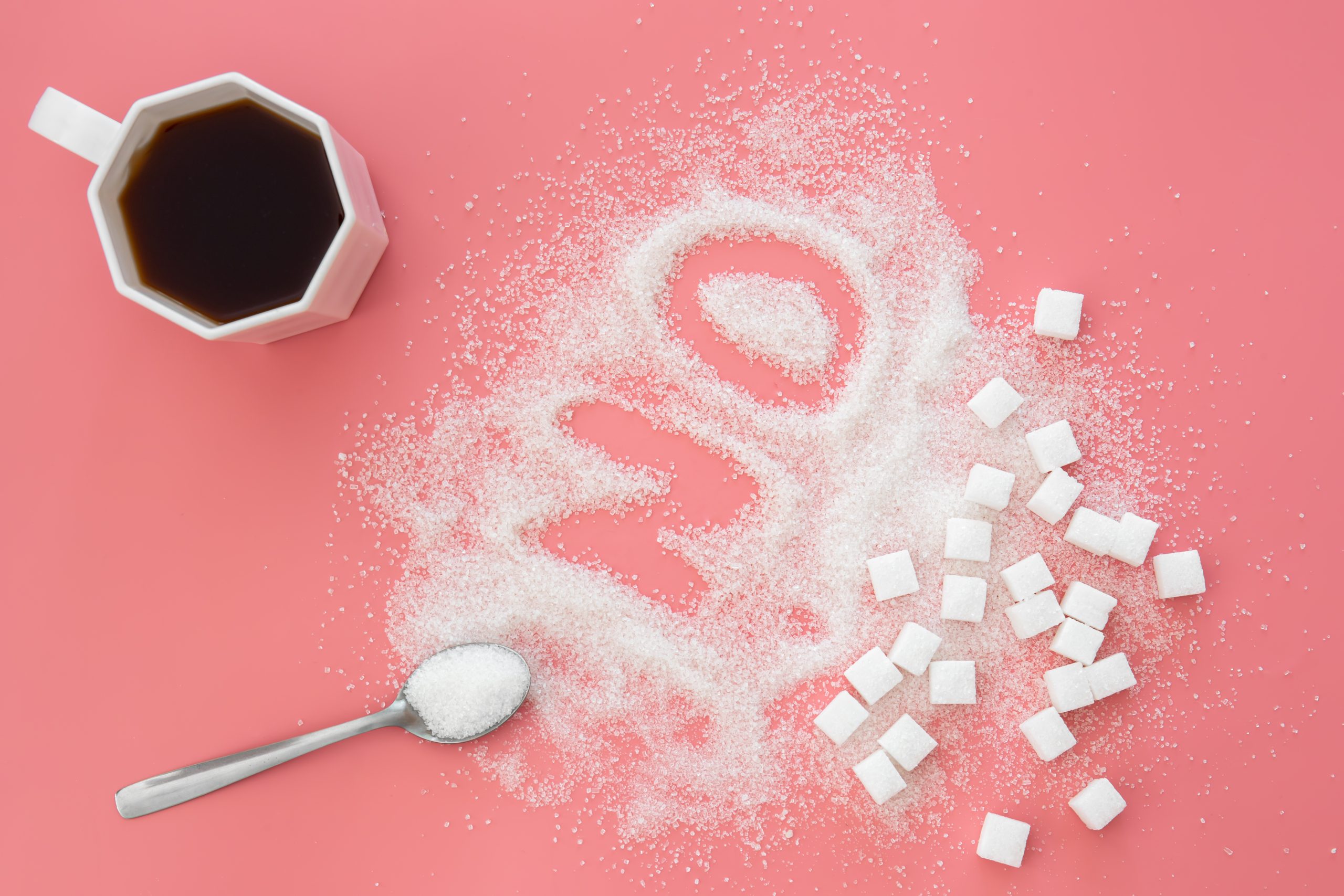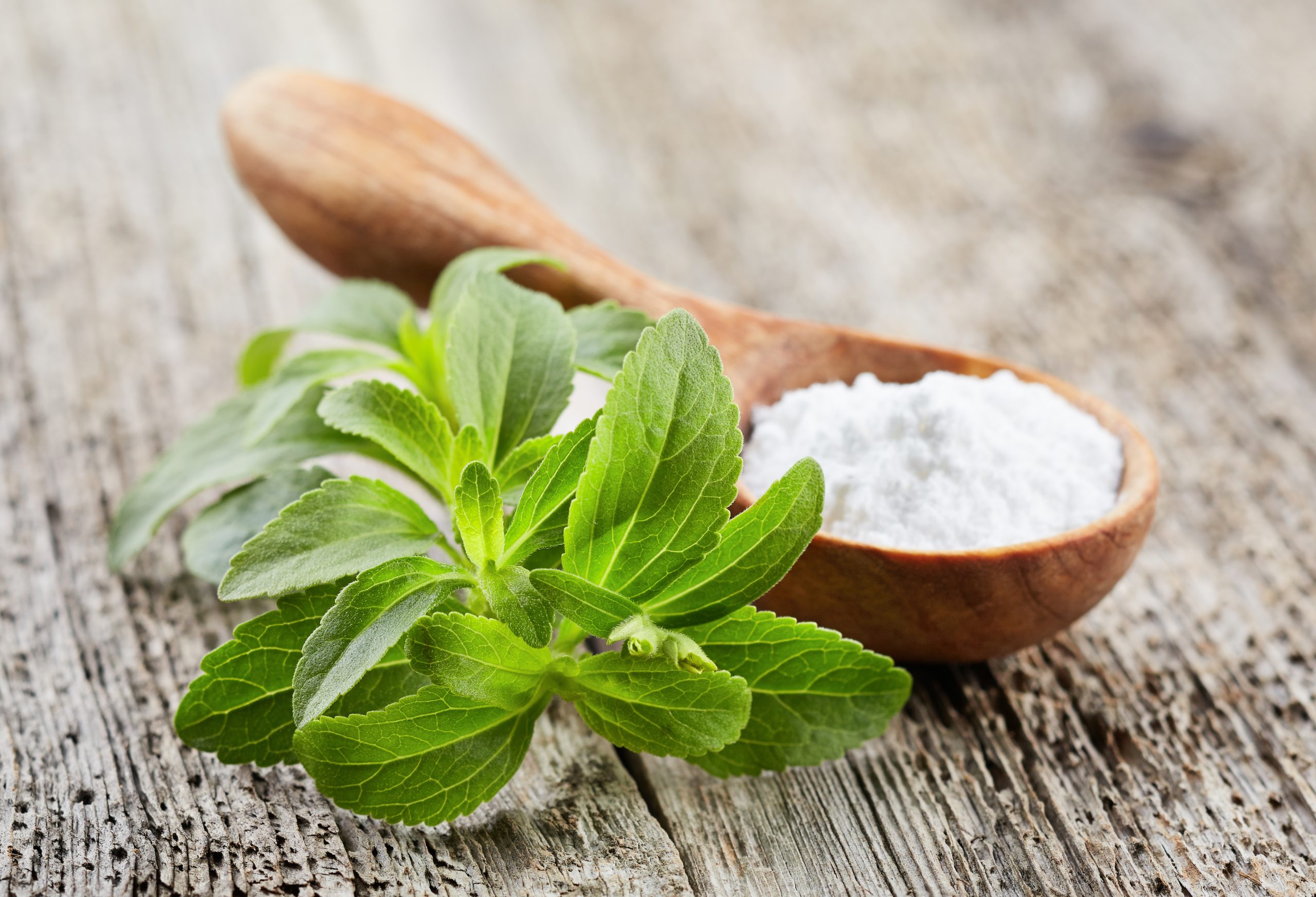Sugar is everywhere. It’s in drinks, desserts, and even savory foods that you find in stores. But as more people try to lose weight, control their blood sugar, and improve their health in general, the need for better options has grown. Stevia, a natural sweetener, is becoming more popular as an alternative for wellness. Is it really better than sugar, though?
The right sweetener can make a big difference. Sugar adds calories, spikes insulin, and increases fat storage. Stevia provides sweetness without these effects. But does that mean you should switch?
This guide compares sugar and stevia to help you decide. You will learn how they affect the body, influence weight loss, and impact long-term health. By the end, you will have a clear answer on which one fits your goals best.
Understanding Sugar: The Sweetener We All Know
What Is Sugar? Natural vs. Processed Forms
Sugar exists in two main forms: natural and processed. Natural sugars come from fruits, dairy, and some vegetables. These sugars are paired with fiber and nutrients, which slow digestion and prevent sharp blood sugar spikes.
Processed sugars, such as white sugar and high-fructose corn syrup, are added to foods for flavor. These sugars provide empty calories with no nutritional value. They digest quickly, leading to a rapid rise in blood sugar and insulin levels.
How Sugar Affects the Body: Energy, Blood Sugar, and Insulin
Sugar is a fast source of energy. When eaten, it breaks down into glucose, which fuels the body. However, it also triggers insulin release. Insulin helps cells absorb glucose, but too much sugar leads to insulin resistance over time. This increases fat storage and raises the risk of diabetes.
Hidden Sugars in Everyday Foods: Are You Consuming More Than You Think?
Many people eat more sugar than they realize. Foods like sauces, flavored yogurts, and salad dressings often contain hidden sugars. Reading ingredient labels helps control sugar intake and avoid unnecessary calories.
The Link Between Sugar and Weight Gain: The Science Explained
Excess sugar contributes to weight gain. It increases hunger, promotes fat storage, and raises calorie intake. Studies show that diets high in sugar lead to obesity, especially around the belly.
What Is Stevia? The Natural Sugar Alternative
Stevia 101: Where It Comes From and How It’s Made
Stevia comes from the Stevia rebaudiana plant. It has been used for centuries in South America as a natural sweetener. The sweet compounds, called steviol glycosides, are extracted and purified for consumption.
Types of Stevia: Raw Leaves, Extracts, and Processed Versions
- Raw leaves: The most natural form but has a slightly bitter taste.
- Stevia extracts: Purified to remove bitterness, providing a cleaner taste.
- Blended stevia products: Often mixed with other sweeteners for improved flavor and texture.
Is Stevia Really Natural? The Truth Behind Its Processing
Stevia undergoes processing to extract its sweet compounds. While some versions contain additives, high-purity stevia remains a natural and safe alternative to sugar.
How Stevia Interacts With the Body: Zero Calories, No Sugar Spikes
Unlike sugar, stevia does not raise blood glucose or trigger insulin release. This makes it an excellent choice for diabetics and those focused on weight control.
Calories and Weight Loss: Which One Helps You Shed Pounds?
Choosing the right sweetener can impact your weight loss journey. Sugar is high in calories, with four calories per gram. It is easy to overconsume, especially in processed foods and beverages. These extra calories add up, leading to weight gain and increased fat storage over time.
Stevia, on the other hand, is completely calorie-free. Swapping sugar for stevia reduces daily calorie intake, making it easier to maintain a calorie deficit for weight loss. Studies show that calorie-free sweeteners, when used correctly, can help manage weight without sacrificing sweetness.
Another key difference is insulin response. Sugar causes blood sugar spikes, leading to insulin release and fat storage. Stevia does not raise blood sugar, helping the body regulate metabolism more efficiently. While cutting sugar helps, weight loss also depends on a balanced diet and active lifestyle. Replacing sugar with stevia is a simple step toward better health.
Comparison of Sugar and Stevia for Weight Loss
| Factor | Sugar | Stevia |
| Calories per gram | 4 | 0 |
| Effect on weight | Promotes fat storage | Supports weight management |
| Blood sugar impact | Causes spikes | No impact |
| Insulin response | Increases insulin release | Does not trigger insulin |
| Metabolism effect | Can slow fat burning | Helps maintain balance |
| Cravings | Increases sugar cravings | Helps reduce sugar cravings |
| Best for diets | High-calorie diets | Keto, low-carb, diabetic-friendly |
Switching from sugar to stevia helps control calorie intake and supports better metabolic health. It is an easy way to enjoy sweetness while staying on track with weight loss goals.
The Taste Factor: Can Stevia Truly Replace Sugar?
Sugar’s Familiar Sweetness: Why We Crave It
The reward system in your brain is activated by sugar. This causes people to want more and eat more than they should. Sugar is very addictive, which can make it hard to cut down.
The Unique Taste of Stevia: Bitter, Sweet, or Just Different?
Stevia is sweeter than sugar, but it can leave a slight aftertaste. A lot of high-quality stevia products are made to be less bitter like Tropicana Slim’s Stevia.
Baking and Cooking With Stevia: Does It Work Like Sugar?
Stevia is good in drinks and some recipes, but it doesn’t turn into caramel like sugar does. It’s good for icing and baking.
Health Impacts Beyond Weight Loss
Sugar and Metabolic Diseases: Diabetes, Obesity, and More
People who consume a lot of sugar are more likely to gain undesired weight, develop type 2 diabetes, and there’s a risk of heart disease. Cutting down on sugar is definitely good for your health in the long run.
Stevia’s Potential Health Benefits: Anti-Inflammatory and Blood Pressure Effects
Studies suggest that stevia has anti-inflammatory properties. It may also help lower blood pressure and support cardiovascular health.
Gut Health Matters: How Sugar and Stevia Affect Your Microbiome
Too much sugar disrupts gut bacteria, leading to digestive issues. Stevia does not harm gut health, making it a better option.
Are There Side Effects? The Risks of Sugar vs. Stevia
While sugar contributes to metabolic issues, stevia is generally safe. Some people may experience mild digestive discomfort with certain stevia products.
The Psychological Side of Sweeteners
Sugar Addiction: Why It’s Hard to Quit
Sugar triggers dopamine release, making it addictive. Many people struggle to reduce sugar intake because of this effect.
Does Stevia Help Reduce Sugar Cravings?
Stevia satisfies sweet cravings without affecting blood sugar. Over time, it may help reduce overall sugar dependence.
The Mental Trick of “Zero Calories”: Can It Backfire on Your Diet?
Some people compensate by overeating other foods. Balance and mindful eating are key when using calorie-free sweeteners.
Comparing Sugar and Stevia in Popular Diets
How Keto, Paleo, and Low-Carb Diets View Sugar and Stevia
- Keto: Sugar is restricted, but stevia is keto-friendly.
- Paleo: Natural stevia is accepted, but artificial sweeteners are not.
- Low-carb: Stevia is a common alternative for reducing sugar intake.
Is Stevia Approved for Weight Loss Programs?
Most weight loss programs recommend reducing sugar. Stevia helps achieve this without sacrificing sweetness.
Can You Use Both? Finding a Middle Ground
Some people make the switch by mixing stevia and sugar. Over time, they cut back on sugar while getting used to the taste.
Conclusion
Stevia is the better choice for health and weight loss. It gets rid of calories that aren’t needed, doesn’t raise blood sugar, and lowers the risks that come with consuming sugar.
Cravings for more food, insulin resistance, and fat storage are all caused by sugar. Stevia makes things sweet without all of these issues. It might take some time to get used to the way stevia tastes, but the long-term benefits are greater than the short-term change.
Switching from sugar to stevia can help you lose weight, keep your metabolism healthy, and avoid developing diabetes. Being aware of the sweeteners you choose can help you live a healthier life and active life.



